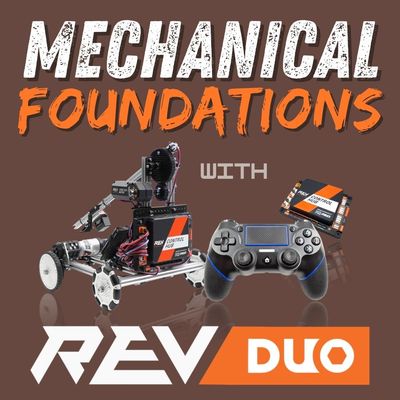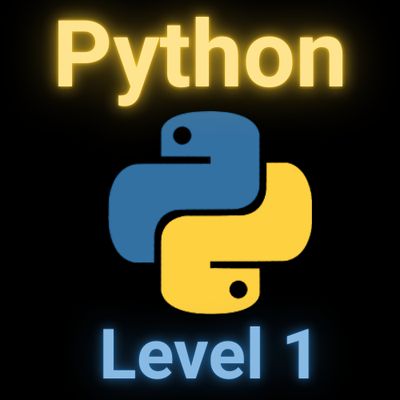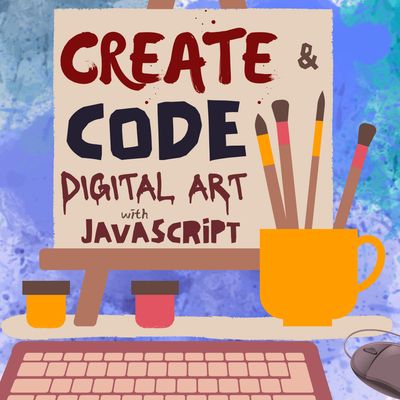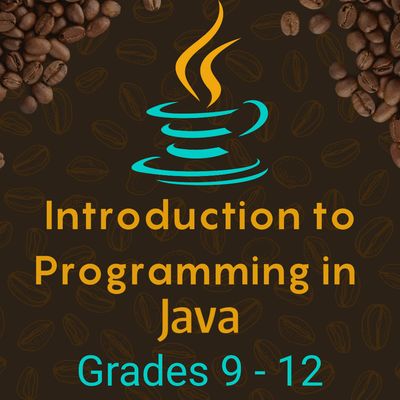Carnegie Mellon Robotics Academy: Electrical Foundations
Total Duration: 3-6 months. The duration of this class is determined by the student’s pace and goals, with flexible scheduling to accommodate diverse learning needs.
Group Discount:
- Groups of 2–3: 10% off
- Groups of 4 or more: 25% off
Master the Basics of Electricity and Circuitry One Class at a Time!
This course provides a hands-on introduction to the foundational concepts of electricity and circuitry. Using Arduino as the core microcontroller, students will learn how to work with circuits, control signals, and integrate sensors. By the end of the program, participants will have constructed an e-panel, a system comprising all the components of a typical robotic system, providing practical experience applicable to robotics and engineering projects.
The course is project-based, allowing students to focus on hands-on learning. For students who watch the videos at home, come prepared to class, and complete the projects on time, the course can be completed in as little as 3–4 months with a commitment of 1.5 hours per week in class. Students who prefer in-person instruction may complete the course in three months with a commitment of two 1.5-hour sessions per week. To earn a certificate, students must complete the projects according to the given specifications, which will be reviewed and approved by instructors before being submitted for upload. Additionally, students must pass the final exam with a score of 70% or better to complete the course and earn their certification successfully. The cost for the certification is an additional $200.
Developed by Carnegie Mellon Robotics Academy
This course was developed by the Carnegie Mellon Robotics Academy (CMRA), a global leader in robotics education. CMRA researches how educators can use robots to teach Computer Science, Science, Technology, Engineering, and Mathematics (CS-STEM). Their mission is to create CS-STEM opportunities for all learners by designing research-based, classroom-tested solutions to foreground essential STEM concepts.
Course Schedule
-
Session 1: Course Setup + Safety
- Review syllabus, tools, and safety practices.
- Identify power sources, polarity, and basic components.
-
Session 2: First Circuit (Battery → Switch → Load)
- Assemble a simple LED circuit with a switch.
- Introduce breadboards and wiring conventions.
-
Session 3: Multimeter Basics — Voltage
- Measure source voltage and across loads safely.
- Troubleshoot open circuits and reversed polarity.
-
Session 4: Lightbox Project — Planning
- Sketch schematic and wiring diagram.
- List materials, wire gauges, and switch placement.
-
Session 5: Lightbox Project — Build
- Cut/strip wires, assemble, and test continuity.
- Label wires and verify safe operation.
-
Session 6: Lightbox Project — Test & Reflect
- Validation checklist and common failure modes.
- Document build notes and improvements.
-
Session 7: Series vs. Parallel Concepts
- Build series and parallel LED circuits.
- Observe brightness differences qualitatively.
-
Session 8: Measurements — Voltage Division & Node Voltage
- Measure node voltages in series/parallel networks.
- Predict vs. measure comparisons.
-
Session 9: LED Sign Project — Planning
- Map segments to parallel branches.
- Select resistors and power distribution.
-
Session 10: LED Sign Project — Build & Test
- Assemble branches, verify current balance.
- Debug dim segments or open connections.
-
Session 11: Motor Basics — Load and Stall
- Spin a DC motor; discuss torque, speed, and load.
- Note current draw vs. applied voltage.
-
Session 12: Multimeter — Current Measurements
- Configure series measurement safely (ammeter).
- Record no-load vs. loaded current.
-
Session 13: Fan Project — Build & Validate
- Assemble fan with proper power and switching.
- Thermal and wire gauge considerations.
-
Session 14: Arduino Setup & I/O Overview
- Install IDE or use web editor; test “Blink”.
- Digital vs. analog pins; PWM concept.
-
Session 15: Driving Outputs — LEDs, Buzzer, PWM
- Write code to fade LED and modulate buzzer.
- Introduce pin current limits and resistors.
-
Session 16: Reading Inputs — Switch Debounce
- Wire a limit switch; use pull-up/pull-down.
- Implement software debounce.
-
Session 17: Motor Control Interface
- Use a transistor or driver to switch a DC motor.
- Flyback diode protection; test PWM speed control.
-
Session 18: Ultrasonic/Distance Sensor — Basics
- Wire sensor; read distance values.
- Calibrate and filter noisy readings.
-
Session 19: Limit Switch Integration
- Detect contact events; state change handling.
- Combine with actuator for reactive behavior.
-
Session 20: Autonomous Kicker — Planning
- Define trigger thresholds and actuation logic.
- Create wiring and code flow diagrams.
-
Session 21: Autonomous Kicker — Build & Test
- Assemble mechanism; iterate timing and force.
- Evaluate reliability and safety.
-
Session 22: E-Panel — Layout & Labeling
- Select components; plan conduit and routing.
- Create labeling scheme and wire list.
-
Session 23: E-Panel — Wiring & Assembly
- Cut wires to length; terminate and secure.
- Continuity checks; strain relief.
-
Session 24: E-Panel — Validation & Documentation
- System power-up checklist and functional test.
- Finalize documentation for certification.
Course Highlights
- Hands-On Learning: Work directly with Arduino and real electrical components.
- Step-By-Step Instruction: Build your skills progressively, mastering each topic before moving on.
- Real-World Applications: Learn how circuits and signals are used in robotics and other industries.
- Problem-Solving Skills: Develop critical thinking and troubleshooting abilities through hands-on projects.
Who Should Join?
This course is perfect for:
- Middle and high school students interested in electronics, robotics, and engineering.
- Beginners eager to learn about electricity, circuitry, and Arduino programming.






